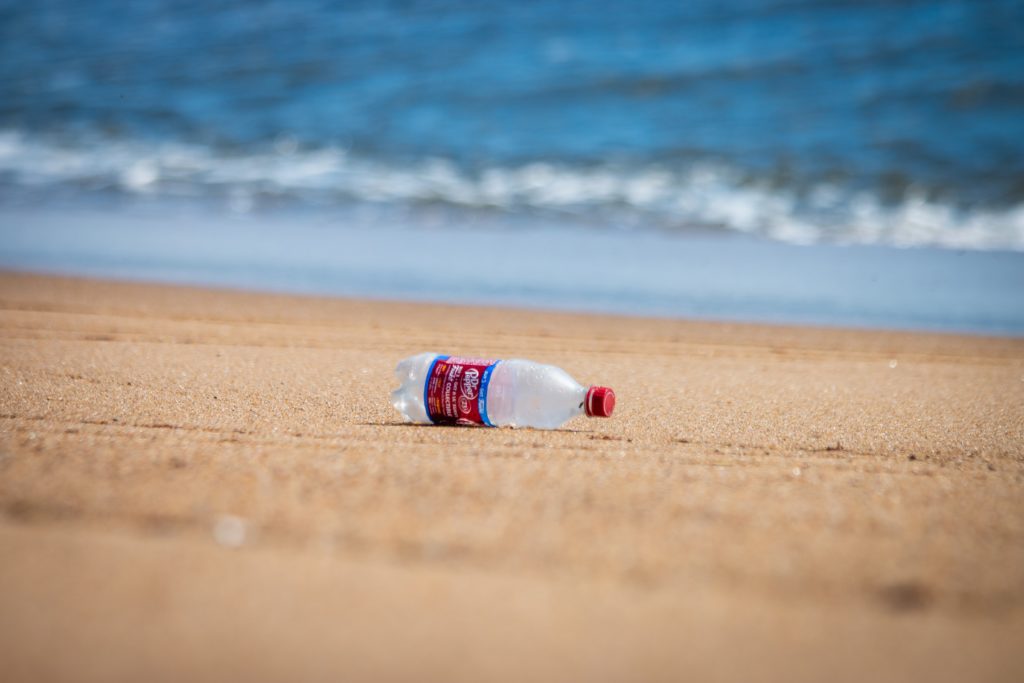The EU is a political and economic union made up of 27 countries. These countries work together to create and enforce policies that strengthen their market and allow for the free movement of people, goods, services, and capital. There’s a lot more to the European Union, but that’s a conversation for another day. In 2019 the European Parliament came together to create new legislation on something we’ve been struggling with worldwide, single-use plastic.
In 2018 it was determined that 79% of all plastic turns into litter. This means plastic waste ends up in landfills where it can take hundreds of years to decompose or ends up in natural environments and oceans where it suffocates wildlife. That’s 6.3 billion metric tons of plastic poisoning our water and food supplies. The European Commission found that less than 30% of European plastic is recycled, which led to this new legislation. The Parliament came up with a ban on single-use plastics by 2021, and new principles to put pressure on manufacturers to bear more environmental responsibility.
However, once the EU passes legislation, participating countries must pass their own to implement new regulations. A few weeks ago, the German Cabinet passed its own law, which will align the country with the European Union’s directive. As of July 3rd of 2021, the sale of single-use cutlery, plates, polystyrene cups and boxes, and other single-use plastics will be banned. Environment Minister Svenja Schulze said the decision was part of an effort to move away from a “throw-away culture.” Up to 20% of trash collected in German parks and public spaces consist of single-use plastic.
The importance of moving away from single-use plastics is being recognized by more and more countries. The U.K. ban on single-use plastics went into effect earlier this year, with over 80% of those surveyed supporting the ban. France banned stores from using single-use plastic bags in 2015, and a planned ban on plastic plates, cups, and straws went into effect on January 1, 2020. In 2017 Kenya banned the use of plastic bags. Canada announced a similar ban to the EU, hoping to stop the production and consumption of all single-use plastic by 2021. Japan recently declared that there was going to be an extra fee for plastic bags when shopping, hoping to discourage shoppers from using them. Wales aims to be zero-waste by 2050.
The U.S. has also passed its own plastic legislation. In 2015 the Obama administration banned microbeads from beauty and hygiene products. These are tiny beads often found in exfoliants and other similar products. Since then, local and state governments have passed their own single-use plastic bans, including:
- New York City
- New York State
- Takoma Park, MD
- Seattle, Washington
- Washington DC
- Miami Beach, FL
- Freeport, Maine
- Portland, Maine
- Nantucket (City & County), Massachusetts
- Minneapolis, Minnesota
- Portland, Oregon (and several other Oregon cities)
- Los Angeles County and San Francisco, California (and many other cities and counties in CA)
However, we now have to ask ourselves whether that is enough. These city- and state-led efforts are a start, but what we need is a federally mandated ban that is on par with other countries. These countries show that introducing a single-use plastic ban is extremely feasible within our own borders. There have been no negative impact to the economy and the quality of life in these countries following the plastic bans. People adjust far more easily to the absence of single-use plastic than lawmakers appear to believe. And if anything, this could introduce more jobs into the market as the supply chain changes and innovation is required.
With an upcoming election, we must make sure that whoever sits in the Oval Office is held accountable for decreasing plastic pollution from the United States, the second-largest plastic polluter in the world.
Get more like this—Sign up for our daily inspirational newsletter for exclusive content!
__
Photo: Brian Yurasits vai Unsplash





